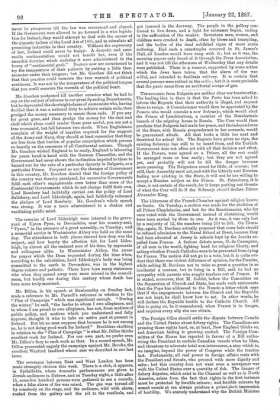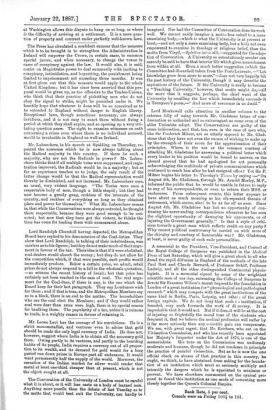The Foreign Office should settle the dispute between Canada and
the United States about fishery rights. The Canadians are pressing those rights hard, or, at least, New England thinks so, and American feeling is growing excited. The Foreign Com- mittee of the House has reported in favour of a Bill autho- rising the President to exclude Canadian vessels when he likes, and threatens to advocate total non-intercourse, a step which is, we imagine, beyond the power of Congress while the treaties last. Fortunately, all real power in foreign affairs rests with the President and Senate, who proceed with more dignity and calm; but this country does not want even a newspaper war with the United States over a quantity of fish. The danger of fishery disputes, which exist in the Channel as well as in North America, arises from the fact that rights in the first instance must be protected by forcible seizure ; and forcible seizures by armed vessels at sea always produce a primci-facie impression of hostility. We scarcely understand why the British Minister
cat Washington allows this dispute to hang on so long, or where is the difficulty of arriving at a settlement. It is a mere ques- tion of property and contract under perfectly well-known laws.



































 Previous page
Previous page